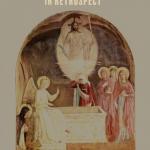Benjamin T. Conner
Disabling Mission, Enabling Witness: Exploring Missiology through the Lens of Disability Studies
Missiological Engagements; Downers Grove, IL: InterVarsity, 2018.
Available at IVP.
Benjamin T. Conner (Western Theological Seminary) has written a very good multi-disciplinary study that incorporates disability studies and missiology. It is filled with wonderful and moving anecdotes about disabled people in our churches, their highs and lows, and what the churches can do for them and with them. Conner’s aim is to “stimulate a conversation between disability studies and theology (particularly mission studies) around a vision of the entire body of Christ sharing in the witness of the church, and to imagine how we might [dis]able Christian theology, discipleship and theological education for the sake of enabling congregational witness” (7) And: “I argue that taking the experiences of those with disabilities seriously can both enrich congregational ministry and witness and demonstrate how addressing the challenges associated with disability is a matter of justice and reconciliation” (7-8). You get an entree into several debates such as whether disability should be defined medically or socially and the extent of disability (indigenous groups in North America can refer to ugliness and immaturity as a form of disability!). Conner makes one important insight, he knows of no study of missiology that ever takes into account the experience of peoples with disability. His thesis/plea is: “The church is in a unique position to address the unemployment, abuse, violence, poverty, homelessness, and various incarcerations faced by people with disabilities. Unfortunately, the church has not consistently understood it to be included in its mission and witness in the world to address such concrete and tangible issues as part of its proclamation of the kingdom of God.”
According to the WHO, 20% of the world’s population have a disability/impairment. You can be born with a disability, acquire disability accident or illness, or age into disability. Anyone training for ministry and pastoral care needs to seriously give attention how to ministry to/with and missionize to/with persons with disabilities. Advocacy for the disabled is also important with western progressives increasingly allowing or encouraging infanticide or the euthanizing of the disabled. Conner’s book is an excellent place to begin thinking about this important task. This is a great book for mission studies and pastoral care courses!











